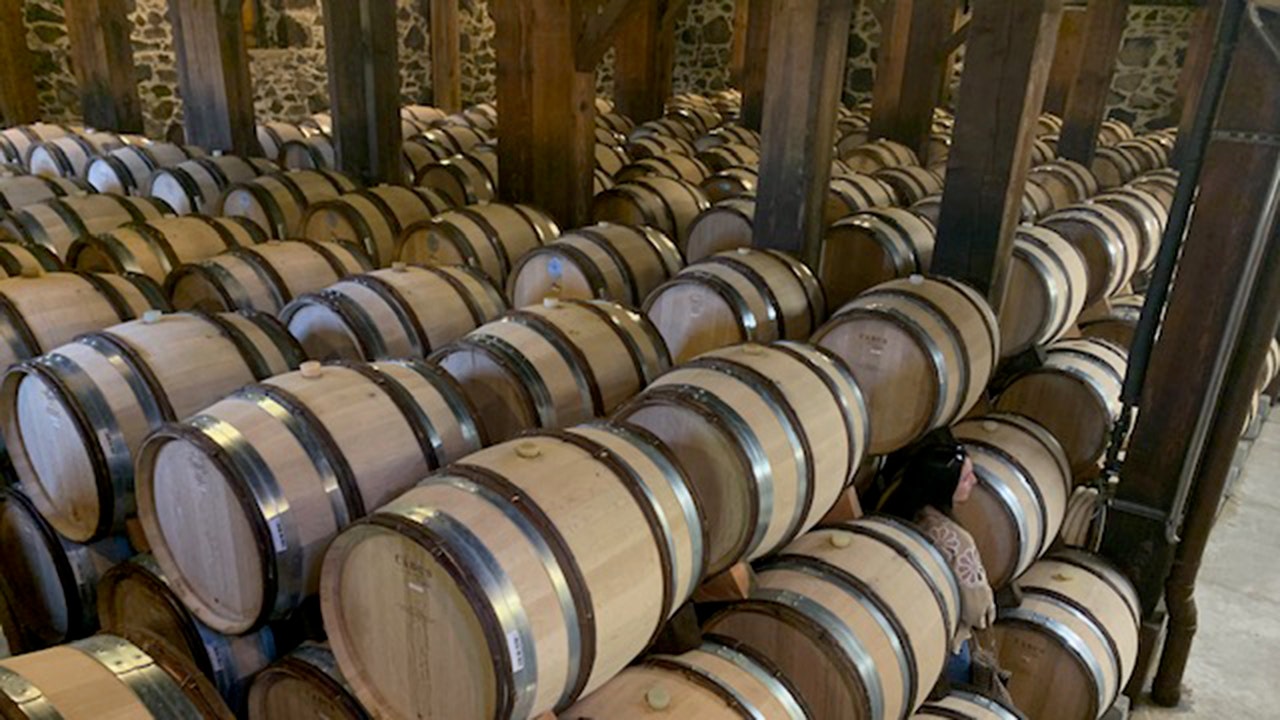The German Peasants’ War of 1524-25 has been called an early “revolution of the common man” by its foremost German historian, Peter Blickle, and deemed a pioneering movement for equality by American historian Sean McMeekin, in his history of communism. Yet its 500th anniversary serves as a reminder of the violence and unrest that can be unleashed by the passion for equality, which remains a foundational ideological commitment and an enduring goal of the political left.
The war was inspired by the Reformation, which was largely though not entirely driven by Martin Luther. But the value of Lyndal Roper’s history is to show that the Reformation did not stir up only theological debates, however consequential these were to become for Europe and Christianity. It also spawned a utopian, violent, mass movement among peasants for what we moderns might call equity. It mostly failed to achieve its goals, as did world communism, but failures rarely deter true believers.
Peasant uprisings have been sufficiently common to have spawned Monty Python skits and clichés about pitchforks-and-torches. Only a few have been consequential, notably those in France in 1789 and Russia in 1917, in which peasant revolts led to wider revolutions birthing ideologies that have had baleful long-term repercussions.
The German Peasants’ War was German only in the sense that its chief protagonists used that language, if few could read it; Germany proper wouldn’t exist for another 300-plus years. The realm that hosted the conflict was the Holy Roman Empire, a many-layered structure that, while it held on for longer than a thousand years, enjoyed no centralized authority it did not share with the Vatican, and little practical power. The empire was, in effect, an aspiration whose ideals were undermined by Martin Luther. In addition to present-day Germany, it included all or parts of modern Austria, Belgium, Czechia, Denmark, France, Italy, Luxembourg, the Netherlands, Poland, and Switzerland. The uprising consumed more than half of the empire.
Roper argues that the war was “the greatest popular uprising in western Europe before the French Revolution,” a claim buttressed by the author’s extensive research in original sources, an impressive feat given that the era of the printed word (essential to historical research) was just getting started at the time. And Roper masters a complicated historical landscape; some lords joined the peasants, based in part on a shared faith, and secular demands jostled with religious claims.
Roper’s research is deep and wide enough to help the reader gain a genuine understanding of these peasants, and one might be forgiven for thinking their anti-Catholic violence—smashing altars, shattering stained-glass windows, burning crucifixes, and destroying monasteries—was designed to forever sever their ties to Christianity. Her history reminds us, however, that these rioters were among the most devout people in all of Christendom. And that was a large part of the problem, originally.
Consider that they both (1) feared damnation and (2) were tied to the land. And then consider that these mostly illiterate laborers were forced to rely on priests to interpret the Bible and mediate their relations to God, the Church, and the hereafter. They lived under the thumb of landlords, many of them Church leaders, who owned the land, largely owned the serfs, and taxed and regulated them thoroughly. And they were in thrall to a Church whose denizens grew wealthy from the fat of the land extracted only by the hard labor of these same peasants. And the kicker is this—their Church and Bible insisted that all men were created equal in the eyes of God.
What could go wrong?
Even in the Medieval Era, secular authority could be altered in response to popular unrest—through new laws or charters or new office holders—but the secular or civic powers exercised by the Church were backed up by one pope and one Bible, and it was not inclined to take suggestions on the appointment of priests or monks, or on the rules and regulations the Church’s feudal regimes imposed on the peasants.
The uprisings’ most utopian goal was a demand that nature be freely shared by all. Much anger originated with the tight grip lords held over the natural resources that surrounded the peasants—land, streams, and woods—and upon which all sustenance depended; land was the highest form of wealth. The lords controlled the water, wood, and coal that powered peasant flour mills, timber saws, and smelting furnaces. They limited fishing, logging, and grazing. And illiterate peasants were baffled and mistrustful of the many written rules that governed this web of regulations. To those who saw nature as God’s realm, it all amounted to stealing God’s gifts to humankind.
Luther’s influential 1520 pamphlet, The Freedom of a Christian, explained his theology in highly nuanced terms, but peasants, many of them serfs without personal freedom, latched onto Luther’s freiheit, freedom. They sought freedom in all things, not just in their preference for a given preacher or Bible passage. That Luther also attacked the Church made it seem natural for peasants to rebel against the monasteries and abbeys for which many of them labored. “In short,” Roper says, “many features of serfdom were akin to slavery, so their articulation of freedom was truly radical.”
In sectarian terms, Christendom was divided by this Reformation behind a defensive screen of Catholic forces fighting off advancing Muslim armies in Hungary. The empire’s ruler, Charles V, also ruled lands held by his family, the Habsburgs, stretching from Spain to Hungary. And it was in the region of present-day Hungary on the heels of the Peasants’ War that his Habsburg successor, Ferdinand I, was fending off an Ottoman Turkish invasion. With the death of Hungary’s King Louis II in battle in 1526 at Mohacs, Bohemia and Hungary fell under Habsburg control, which created the Austrian-based empire that would survive until 1918. Ottoman armies, which twice placed Vienna under siege, encouraged princes and lords across Europe to settle religious differences peacefully so as to avoid more civil wars.
The war enjoyed a half-life, inspiring Marxists, SS officers, and other Germans to see in it a precedent for the various historical claims in support of their political programs. Given the peasants’ demands that all people should share equally in nature’s bounty and that a nebulous sense of “brotherhood” should govern all human relations, it is easy to see why Friedrich Engels was drawn to exploit the war with his own history of the uprising in 1850, The Peasant War in Germany. This, despite the pamphlet he and Karl Marx published in 1848, The Communist Manifesto, which famously refers to “the idiocy of rural life.”
In the end, the insurrection united principalities that might otherwise have gone to war over Luther’s reforms, when the armies of the Lutheran prince of Hesse and the Catholic duke of Saxony combined in 1525 to finally defeat a large peasant army. Indeed, historian Christopher Dawson said about the Reformation, “The theocratic unity of mediaeval Christendom was destroyed, and Europe became a society of sovereign states in which the temporal power of the prince either abolished or severely limited the spiritual power of the universal Church.” State replaced Church.
The Reformation and its peasant war remain relevant. The urge to reform every aspect of life—to improve, rectify, restore, rebuild, remedy, repair, revise, repent, or atone—remains as strong as the passion for equality. And launching “reformations” can still entail existential risks; just ask Mikhail Gorbachev who, like Luther, continues to be praised in the West for sparking a revolution he neither desired nor foresaw.
Summer of Fire and Blood: The German Peasants’ War
by Lyndal Roper
Basic Books, 544 pp., $35
Kevin J. McNamara is a nonresident fellow at the Foreign Policy Research Institute and the author of Dreams of a Great Small Nation: The Mutinous Army that Threatened a Revolution, Destroyed an Empire, Founded a Republic, and Remade the Map of Europe (Public Affairs). The opinions expressed here are the author’s own.
The post Christendom’s Mad Monk and His Mutineers appeared first on .
Read the full article here







